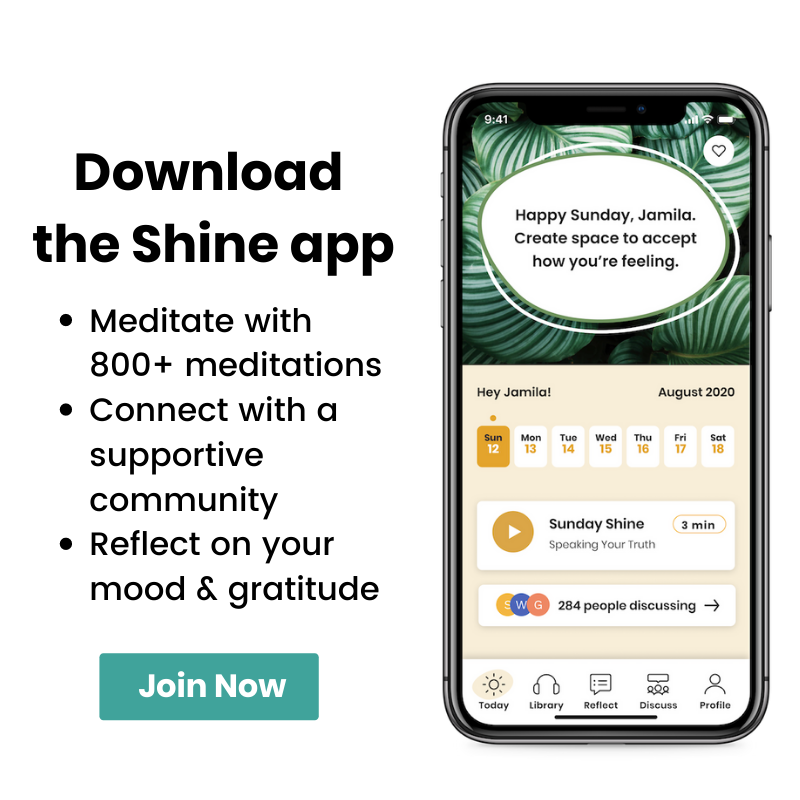How I Take Care: Dr. Joy Harden Bradford, Founder of Therapy For Black Girls
We're in a global mental health crisis—and caring for the mental health of marginalized folks, particularly within the Black community, is critical.
No one knows this better than Dr. Joy Harden Bradford.
As a psychologist, author, and podcast host, Dr. Joy has established herself as a leader in the mental health world. She made her mark with the creation of Therapy For Black Girls—an online space that specifically helps Black women connect to therapists and accessible mental health resources.
Since she has inspired the healing of so many and the destigmatization of conversations about mental health in the Black community, we wanted to know how she takes care and prioritizes her mental health.
In this How I Take Care interview: Dr. Joy dives into how she practices community care, what self-care means to her, and what's bringing her joy and hope.

How she defines self-care:
Self-care means all of the things I do to nourish and restore myself, mind body, and spirit. It’s important because it’s what’s required for me to keep myself functional. It’s what allows me to keep showing up in my work, for my family, and for myself.
On coping tools that help her heal:
I’d say caring for my mental health is definitely something that I’ve become more intentional about as I’ve gotten older and definitely this year. It has absolutely changed this year as many of the things I used to employ to manage my mental health, like spending time with friends and getting massages, have looked very different this year.
Getting outside for a few minutes every day to let the sun shine on my face or to hear the crackling of leaves on the ground has been critical this year. Typically, I also like to end my days with meditation tracks that help me to feel more connected to my internal experiences and demarcate a move from work mode to rest mode.
As I’ve gotten older, I’ve learned how to give myself more grace and to be less critical of myself when I make mistakes.
As I’ve gotten older I’ve learned how to give myself more grace and to be less critical of myself when I make mistakes.
On authentic relationships with friends and community rooted in care:
Maintaining friendships with women from multiple phases of my life is what has allowed me to foster a space for authenticity. I appreciate having connections that don’t require me to do anything except just be myself.
Community care is the center of the work that I do. Black women have a long history of prioritizing the needs of others while also withstanding tons of negative criticism and stereotyping. My goal is to have their experience with Therapy for Black Girls be one that is affirming, positive, and where their needs are centered.
I do consider community care a vital part of my mental health journey as well. Having close connections to family and friends is what keeps me grounded.
Black women have a long history of prioritizing the needs of others while also withstanding tons of negative criticism and stereotyping. My goal is to have their experience with Therapy for Black Girls be one that is affirming, positive, and where their needs are centered.
On hope and joy:
I think hope is important to my mental health and usually I feel an abundance of it, but this year it has felt incredibly limited.
Cultivating hope for me largely comes from interactions with my children. Dance parties with my husband and children, the Jingle Jangle movie and soundtrack, and more free time to rest and relax are brigning me joy right now.
This interview has been edited and condensed for clarity.

Shine is supported by members like you. When you buy through links on our site, we may earn an affiliate commission. See our affiliate disclosure for more info.



